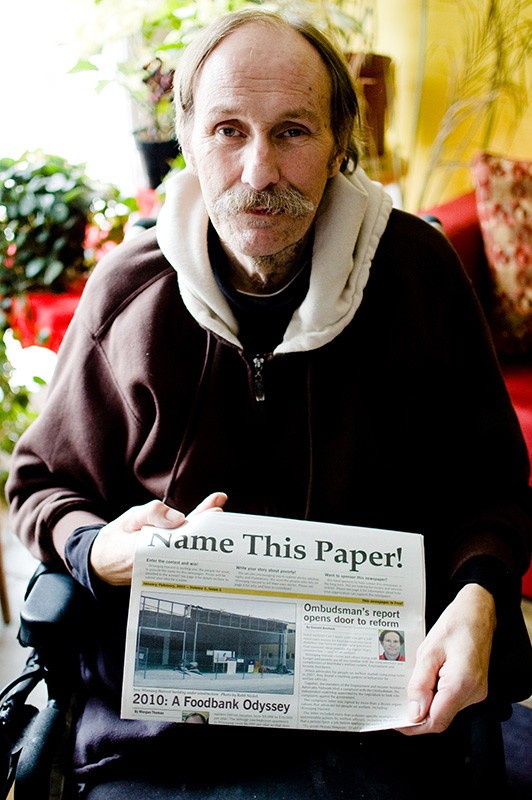Remembering “Citizen Nick”
Longtime civic activist Nick Ternette never gave up on Winnipeg, or himself
It’s Monday, March 4, several hours after longtime Winnipeg activist Nick Ternette, 68, died peacefully in the palliative care unit at St. Boniface General Hospital.
Winnipeggers have endured a heavy snowfall that has blanketed the city and clouded the sky since early morning. And, as they scrape windshields or pile onto ageing transit buses attempting to get home, many will be reflecting on the tenacity and spirit of a man they once called “Citizen Nick.”
So far, media reports have focused on Nick’s robust life as an activist and frequent political candidate before battling cancer and contracting a disease that resulted in the amputation of his legs in 2009.
Born in 1945, Nick immigrated to Winnipeg from Germany at 10 years old and grew up in the West End before attended the University of Winnipeg and graduating in 1967.
Throughout the 1970 and ‘80s, he became heavily involved in local politics and independent journalism. He eventually ran for mayor five times between 1977 and 2003.
But I never knew him then.
I am one of many University of Winnipeg students too young to recall his mayoral campaigns or his early City Hall mischief, where he would frequently make presentations to city council.
When I reflect on it now, Nick was struggling with illness - in one way or another - from the moment I met him.
But he never seemed sick to me.
I first met Nick in The Uniter office when I was a rookie reporter just becoming interested in civic issues. Hearing his cantankerous diatribes at a news meeting, bolstered by his vast knowledge of Winnipeg’s political and socio-economic history, I knew I had better shut up and pay attention.
Bumping into him and talking politics at the U of W in the years since, he would often make passing reference to his failing health. Still, his sharp intellect and obvious personal strength made me somehow doubt - or not want to accept - his illness.
In short, when Nick gave his last presentation to city council and announced his retirement shortly before moving into McFeetor’s Hall at the U of W in 2009, he was not actually reducing his activism, as many suggested at the time.
Instead, he started writing a regular, unpaid column for The Uniter and spent Friday afternoons helping 20-year-old kids learn about journalism and civic politics.
“ At no point did he succumb, in his personal or professional life, to fatalism. Instead, he wrote countless articles and letters, volunteered at food banks, ran for political office, marched and protested for change.
He advocated for people with disabilities, tirelessly volunteered at Winnipeg Harvest and, later, worked to create a street newspaper that could help tell the stories of people in poverty.
Just over a month before his death, he wrote in the pages of The Uniter about the growing health gap between the rich and poor in Manitoba and, in another column, argued that low income Winnipeggers are being “nickeled and dimed to death” by annual transit fare increases.
Before that, in September of last year, he lamented the closure of the Ellice Cafe and Theatre and questioned where the regulars would go.
“...Many just sat with cups of warm coffee for hours, talking and laughing, and no one asked them to leave,” he wrote, arguing the cafe’s affordability helped foster community in the West End.
“Where will they go now?”
These articles reflect that, until the moment he died, Nick was a shining example of what it means to be a community member and a citizen.
“For more than four decades, he challenged all levels of government through direct, participatory democracy,” wrote Dr. Lloyd Axworthy in a statement put out by the university today.
“Nick was the passionate personification of grassroots citizenry.”
It was this tenacity and belief in positive change that countless Winnipeggers, whether they agreed with his politics or not, respected about Nick Ternette.
At no point did he succumb, in his personal or professional life, to fatalism. Instead, he wrote countless articles and letters, volunteered at food banks, ran for political office, marched and protested for change.
As I endure another Winnipeg snow storm and break out the shovel once more, I will be thinking - today, at least - only of “Citizen Nick.”
Ethan Cabel is the news assignment editor at The Uniter and a politics student at the University of Winnipeg.
Published in Volume 67, Number 21 of The Uniter (February 28, 2013)








